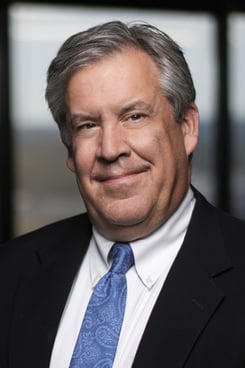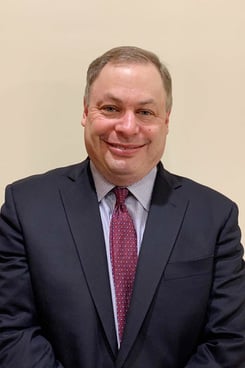 A Wawa convenience store in New Jersey. Credit: Michael D. Morrow/Shutterstock.com
A Wawa convenience store in New Jersey. Credit: Michael D. Morrow/Shutterstock.com Cursing in Public: Tourette's Case Shines Light on ADA Accommodation
A legal dispute over accommodation of Tourette syndrome in a job involving interaction with the public is a particularly "tricky" type of disability dispute, said plaintiff-side employment lawyer Andrew Moskowitz.
March 22, 2024 at 04:38 PM
5 minute read
A convenience store chain has just been hit with an Americans with Disabilities Act suit from a former store manager from New Jersey who claims he was demoted twice after being diagnosed with Tourette syndrome.
John Casalnova, who was earning a six-figure income as a store manager for Wawa before he was diagnosed with the neurological disorder, now works as a gasoline attendant for the company, his lawyer said.
Employment disputes involving people with the syndrome can be particularly thorny because some with the disorder have involuntary outbursts of obscenities and offensive language.
And a recent court decision from the U.S. Court of Appeals for the Sixth Circuit could be bad news for people who suffer from the disorder who want employers to accommodate their disabilities.
 Erica Domingo of Grungo Law. Courtesy photo
Erica Domingo of Grungo Law. Courtesy photo Casalnova has not exhibited any of the outbursts that sometimes accompany Tourette syndrome, but he sought assurances from the company that if he did have such an episode, consideration would be given that such outbursts are involuntary, according to the suit filed in New Jersey's Camden County Superior Court.
But the company denied the request, saying that any utterance involving curse words could upset customers and be a terminable offense, the suit claims.
"Wawa refused to do that, but also would not consider transferring him into a position where he wouldn't be customer-facing, because they said other employees could be offended if you had that type of outburst," said Erica Domingo, an attorney at Grungo Law in Cherry Hill, New Jersey, who represents Casalnova.
"There are certain obligations under the New Jersey Law Against Discrimination for the employer to see how any disability can be accommodated. I believe the facts will demonstrate that Mr. Casalnova made every attempt to try to see how this could be accommodated by Wawa, which is a very big employer, [and] that Wawa just sort of seemed to have no interest in engaging in that interactive process with him," Domingo said.
Wawa did not respond to a request for comment about Casalnova's suit.
 J. William Manuel of Bradley Arant Boult Cummings. Courtesy photo
J. William Manuel of Bradley Arant Boult Cummings. Courtesy photo Employers seeking to accommodate employees with Tourette syndrome could find encouragement in a Feb. 15 ruling from the Sixth Circuit.
In Cooper v. Coca-Cola Consolidated, the court upheld a ruling from the Eastern District of Tennessee dismissing a constructive-discharge suit by a man with the syndrome who exhibited uncontrollable utterances, including a racial slur and a derogatory term for women.
The plaintiff, Cameron Cooper, worked delivering soft drinks to retail stores, and customers and employees in the stores had complained. Cooper was moved to a warehouse job that paid less.
The court of appeals said delivering drinks to stores required excellent customer service and that his involuntary use of profane and racist language in front of customers showed his inability to perform the essential function.
The court said the company could not provide Cooper's proposed accommodation, which was a delivery route that did not require him to interact with customers. The court said the transfer to the warehouse was reasonable because Cooper could not perform the delivery job without an accommodation, and he failed to identify an objectively reasonable accommodation.
The Sixth Circuit decision could work in favor of Wawa if it had any complaints or other evidence that Casalnova's condition made other employees uncomfortable, said J. William Manuel, a litigator at Bradley Arant Boult Cummings in Jackson, Mississippi, who blogged about the Sixth Circuit ruling.
If Casalnova's condition is making co-workers so uncomfortable that they don't want to be around him, the circumstances would fall in line with the Sixth Circuit case, said Manuel.
 Andrew Moskowitz of Javerbaum Wurgaft Hicks Kahn Wikstrom & Sinins in Springfield, New Jersey. Courtesy photo
Andrew Moskowitz of Javerbaum Wurgaft Hicks Kahn Wikstrom & Sinins in Springfield, New Jersey. Courtesy photo But if Wawa were merely reacting to speculation about symptoms he might show in the future, it could be in trouble, Manuel said.
"As the Sixth Circuit decision pointed out, the symptoms of actually spouting out offensive phrases is a very rare condition. You often have Tourette's and all it does is [cause] twitches or involuntary sounds, but it's not anything offensive. So if the employer ended up saying, you got Tourette's and it makes people scared because they know you're going to say something improper, but there's no actual proof that he's doing that, then the employer is going to be in trouble," Manuel said.
In the Wawa case, a key question is whether Casalnova's ability to interact with or face customers was an essential function of his position as a training general manager and as general manager, said Andrew Moskowitz, a plaintiff-side labor and employment lawyer for Javerbaum Wurgaft Hicks Kahn Wikstrom & Sinins in Springfield, New Jersey.
A legal dispute over accommodation of the disorder in a job involving interaction with the public is a particularly "tricky" type of disability dispute, Moskowitz said.
"But I don't think an employer can say as a general rule we will not permit people with Tourette syndrome to interact with the public," Moskowitz said. "The employer would need some evidence that the particular employee was experiencing symptoms that would result in inappropriate behavior."
NOT FOR REPRINT
© 2025 ALM Global, LLC, All Rights Reserved. Request academic re-use from www.copyright.com. All other uses, submit a request to [email protected]. For more information visit Asset & Logo Licensing.
You Might Like
View All
Was $1.3M in 'Incentive' Payments Commission? NJ Justices Weigh Arguments
3 minute read

After DEI Rollbacks, Employment Lawyers See Potential For Targeting Corporate Commitment to Equality
7 minute read
Law Firms Mentioned
Trending Stories
- 1Public Notices/Calendars
- 2Wednesday Newspaper
- 3Decision of the Day: Qui Tam Relators Do Not Plausibly Claim Firm Avoided Tax Obligations Through Visa Applications, Circuit Finds
- 4Judicial Ethics Opinion 24-116
- 5Big Law Firms Sheppard Mullin, Morgan Lewis and Baker Botts Add Partners in Houston
Who Got The Work
J. Brugh Lower of Gibbons has entered an appearance for industrial equipment supplier Devco Corporation in a pending trademark infringement lawsuit. The suit, accusing the defendant of selling knock-off Graco products, was filed Dec. 18 in New Jersey District Court by Rivkin Radler on behalf of Graco Inc. and Graco Minnesota. The case, assigned to U.S. District Judge Zahid N. Quraishi, is 3:24-cv-11294, Graco Inc. et al v. Devco Corporation.
Who Got The Work
Rebecca Maller-Stein and Kent A. Yalowitz of Arnold & Porter Kaye Scholer have entered their appearances for Hanaco Venture Capital and its executives, Lior Prosor and David Frankel, in a pending securities lawsuit. The action, filed on Dec. 24 in New York Southern District Court by Zell, Aron & Co. on behalf of Goldeneye Advisors, accuses the defendants of negligently and fraudulently managing the plaintiff's $1 million investment. The case, assigned to U.S. District Judge Vernon S. Broderick, is 1:24-cv-09918, Goldeneye Advisors, LLC v. Hanaco Venture Capital, Ltd. et al.
Who Got The Work
Attorneys from A&O Shearman has stepped in as defense counsel for Toronto-Dominion Bank and other defendants in a pending securities class action. The suit, filed Dec. 11 in New York Southern District Court by Bleichmar Fonti & Auld, accuses the defendants of concealing the bank's 'pervasive' deficiencies in regards to its compliance with the Bank Secrecy Act and the quality of its anti-money laundering controls. The case, assigned to U.S. District Judge Arun Subramanian, is 1:24-cv-09445, Gonzalez v. The Toronto-Dominion Bank et al.
Who Got The Work
Crown Castle International, a Pennsylvania company providing shared communications infrastructure, has turned to Luke D. Wolf of Gordon Rees Scully Mansukhani to fend off a pending breach-of-contract lawsuit. The court action, filed Nov. 25 in Michigan Eastern District Court by Hooper Hathaway PC on behalf of The Town Residences LLC, accuses Crown Castle of failing to transfer approximately $30,000 in utility payments from T-Mobile in breach of a roof-top lease and assignment agreement. The case, assigned to U.S. District Judge Susan K. Declercq, is 2:24-cv-13131, The Town Residences LLC v. T-Mobile US, Inc. et al.
Who Got The Work
Wilfred P. Coronato and Daniel M. Schwartz of McCarter & English have stepped in as defense counsel to Electrolux Home Products Inc. in a pending product liability lawsuit. The court action, filed Nov. 26 in New York Eastern District Court by Poulos Lopiccolo PC and Nagel Rice LLP on behalf of David Stern, alleges that the defendant's refrigerators’ drawers and shelving repeatedly break and fall apart within months after purchase. The case, assigned to U.S. District Judge Joan M. Azrack, is 2:24-cv-08204, Stern v. Electrolux Home Products, Inc.
Featured Firms
Law Offices of Gary Martin Hays & Associates, P.C.
(470) 294-1674
Law Offices of Mark E. Salomone
(857) 444-6468
Smith & Hassler
(713) 739-1250






